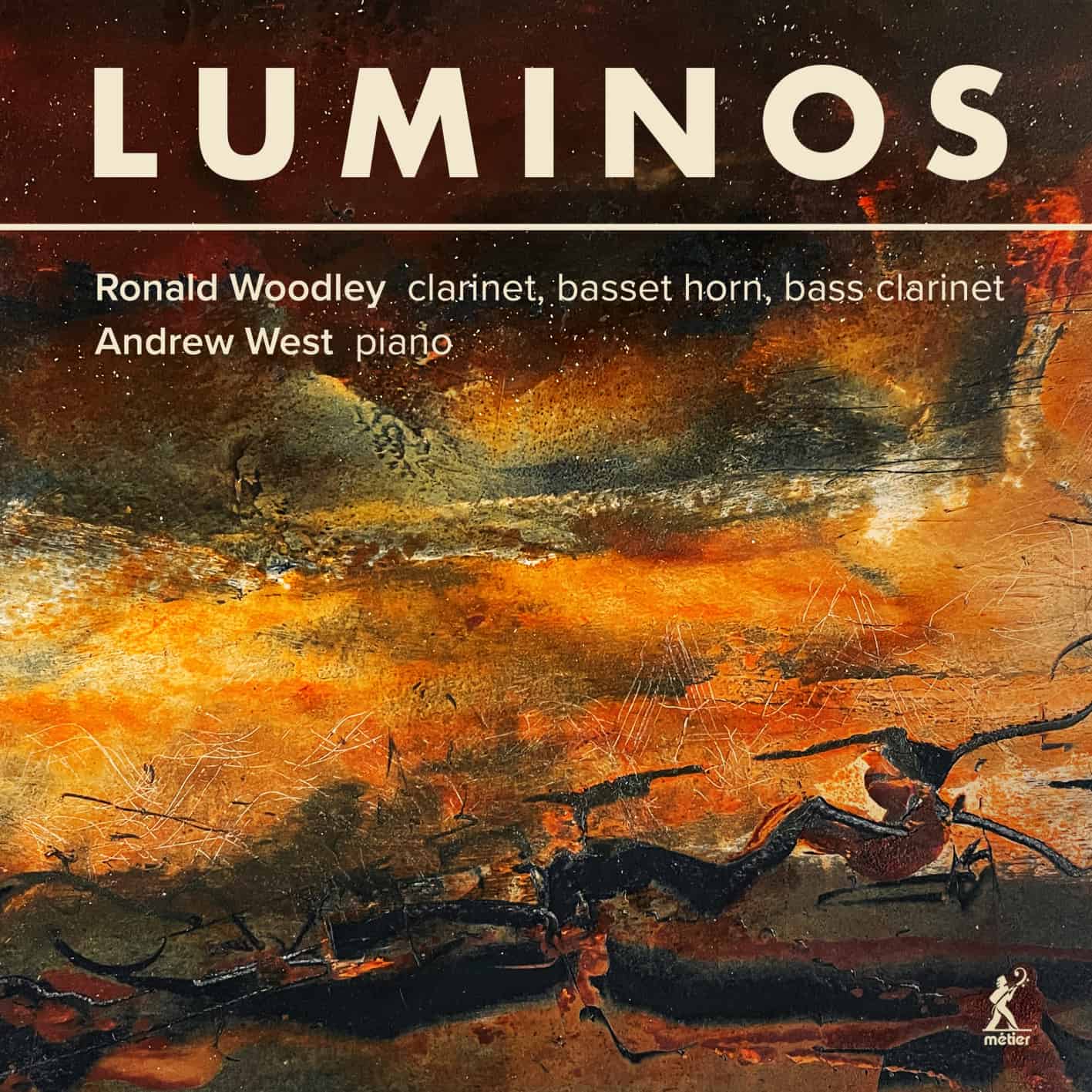The Clarinet
British clarinetist Ronald Woodley has released an album featuring new music for clarinet, basset horn, and bass clarinet with piano played by Andrew West. Of the seven works included, three are for basset horn and three for bass clarinet. Five are premiere recordings of pieces written for Woodley, and the other two were written for the British basset hornist Georgina Dobrée. As we are beginning to see a resurrection of the basset horn and alto clarinet, it is exciting to find new works for this long-neglected middle voice of the clarinet family!
Elisabeth Lutyens’s This Green Tide, op. 103 (1975) for basset horn and piano opens the album with a soft minor-second two- note motif that Woodley performs in an intriguingly haunting way, immediately drawing the listener in. With the sweet highs and powerful lows, Woodley maintains a broad tone and control throughout the full dynamic range, gliding seamlessly through all the registers of the basset horn.
The second work on the album is the premiere recording of Angela Elizabeth Slater’s Around the Darkening Sun for bass clarinet and piano, written for Woodley in 2020. This five-minute work continues to showcase his ability to soar through the registers of the bass clarinet just as easily as with the basset horn. The piece begins with the bass clarinet and piano playing raucous low notes, followed by more gentle playing as the two parts become entwined. As the work continues, they become more separated and follow their own paths of development before coming back together for the slowly emerging melody of long tones with a final flurry at the end.
The title track, Luminos, op. 16a for basset horn and piano, was written by Morris Pert in 1972. Like the Lutyens, there is an ominous character to the beginning of the piece, with the piano using several extended techniques to set the mood. For the next 16 minutes Woodley takes the listener on a journey with the basset horn, telling a story that begins with a melancholy narrative that gains momentum into a driving persistence in the upper register of the instrument. It relents into a lyrical calmness supported by more piano textures and Woodley’s tender playing shines through here. The form repeats the moods of agitation and somberness, ending with a reflective pensiveness. This is a very enjoyable piece that highlights Woodley’s sensual musicality and technical control of the basset horn.
The only work on the album without piano is Christopher Fox’s This has happened before for four bass clarinets, which Woodley has multitracked. The four bass clarinets play the same slow- moving long-note melodic material, but beginning at different times and at different speeds. The playing itself is minimalist, but its simplicity allows the beautiful harmonic elements created by the differing speeds of the melodic lines to emerge.
Lutyens contributes another piece to the album, for Bí clarinet and piano, Five Little Pieces, op. 14 no. 1. Written in 1945, this is the premiere recording of the five short movements. Each miniature is under one or two minutes long and titled according to its mood: “Lirico,” “Drammatico,” “Doloroso,” “Pastorale,” and “Declamatorio.” Woodley’s clarinet sound is rich and fluid as he takes command of each expression.
The Space Between Heaven and Earth is the third work for basset horn and piano on the album, and the premiere recording. The four movements are named for the four seasons. “Winter,” as one might imagine, has a bleak mood and, following what seems to be a theme on this album, begins with soft and sparse musical ideas that Woodley conveys with beautiful conviction. “Spring” brings a sense of hope with the basset horn ascending into its altissimo register. “Summer” gives Woodley a chance to show off his agility on the instrument as it bounces through the themes, arriving at “Autumn” with its long basset horn lines and Woodley’s robust tone as West’s piano tinkles away underneath.
The final work and premiere recording on the album is Edward Cowie’s five-movement Heather Jean Nocturnes for bass clarinet and piano, composed in 2023 and based on paintings created by his wife. Woodley’s expressive voice on the bass clarinet shines through in this piece with exemplary blend with the piano. His lyrical mastery is punctuated with dynamic control of the musical material, exploring a rich variety of timbres and occasional contemporary techniques. The result is a wonderful 20-minute tour exploring the nuances of the four-elements-inspired artwork as in terpreted through sound. The paintings are printed in the accompanying booklet, which is itself a hefty tome as far as album covers go, at 24 pages with liner notes, biographies, and photographs.
Clocking in at 76 minutes and 40 seconds, the 18 tracks of Luminos just fit onto a single CD, but are also available in downloadable formats. I would recommend this album to anyone that is looking for new works for basset horn and bass clarinet, brought to life by Ronald Woodley’s wonderfully emotive and expressive playing.
@divineartrecordingsgroup
A First Inversion Company
Registered Office:
176-178 Pontefract Road, Cudworth, Barnsley S72 8BE
+44 1226 596703
Fort Worth, TX 76110
+1.682.233.4978












